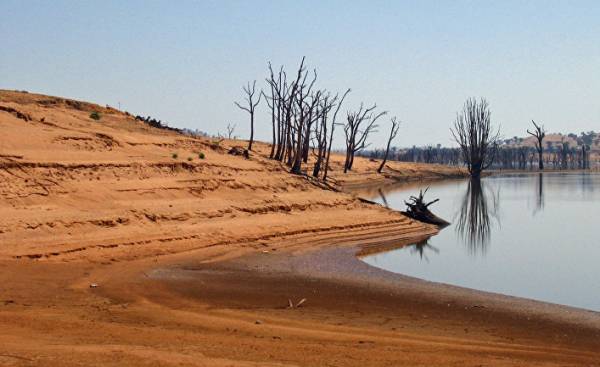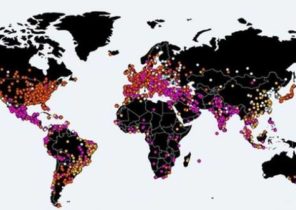
On the horizon of the Persian Gulf rises the storm from under the feet of dust And you open a faucet and see dirt and rust instead of water. Then you, scared, head to the supermarket to buy a bottle of water, but find empty shelves. And then through the streets the blood starts flowing because people kill each other to quench their thirst. Now there are only two options: die of thirst or be killed in the conflict for the dirty water.
Cruel picture. I think a resident of the Bay will not die from a nuclear bomb, dropped their Persian neighbor, and not in local wars. He will die from wasteful water policy. It creates the illusion of prosperity, but the Arabian Peninsula remains one of the most arid region and suffers from water shortages. People will die at the hands of Shia or Sunni, as repeated by the American media. People will die of thirst.
Who would have thought that in the countries of the Persian Gulf one of the most advanced in the world agriculture, production of milk, juices. But look at the decline of groundwater: the production of one liter of milk plants use 800 liters of water.
In 2004 we developed the project of water network that would connect all the Gulf countries along with the electric network. But no real steps had been taken.
The project was reconsidered but was again rejected. Its implementation depends on desalination plants that are subject to frequent failures and require large amounts of energy resources, especially oil production which, in turn, also requires water. It is a vicious circle: small quantity is received fresh water does not compensate spent on its production of oil. The most effective project connects the desalination plant in the Gulf of Oman and the Arabian sea. His aim is to provide a strategic reserve of fresh water for each city in the Persian Gulf to counter drought, to ensure water security for its citizens and to exclude war for water.
According to some reports the world is facing a water crisis. And the Gulf countries is one of the most water-scarce regions: there is little and superficial, and underground water. Therefore, in the near future should be to develop a common approach to eliminate the deficit of water resources, particularly in connection with high rate of economic growth in the region. This note was written on the occasion of world water day, celebrated March 22.






